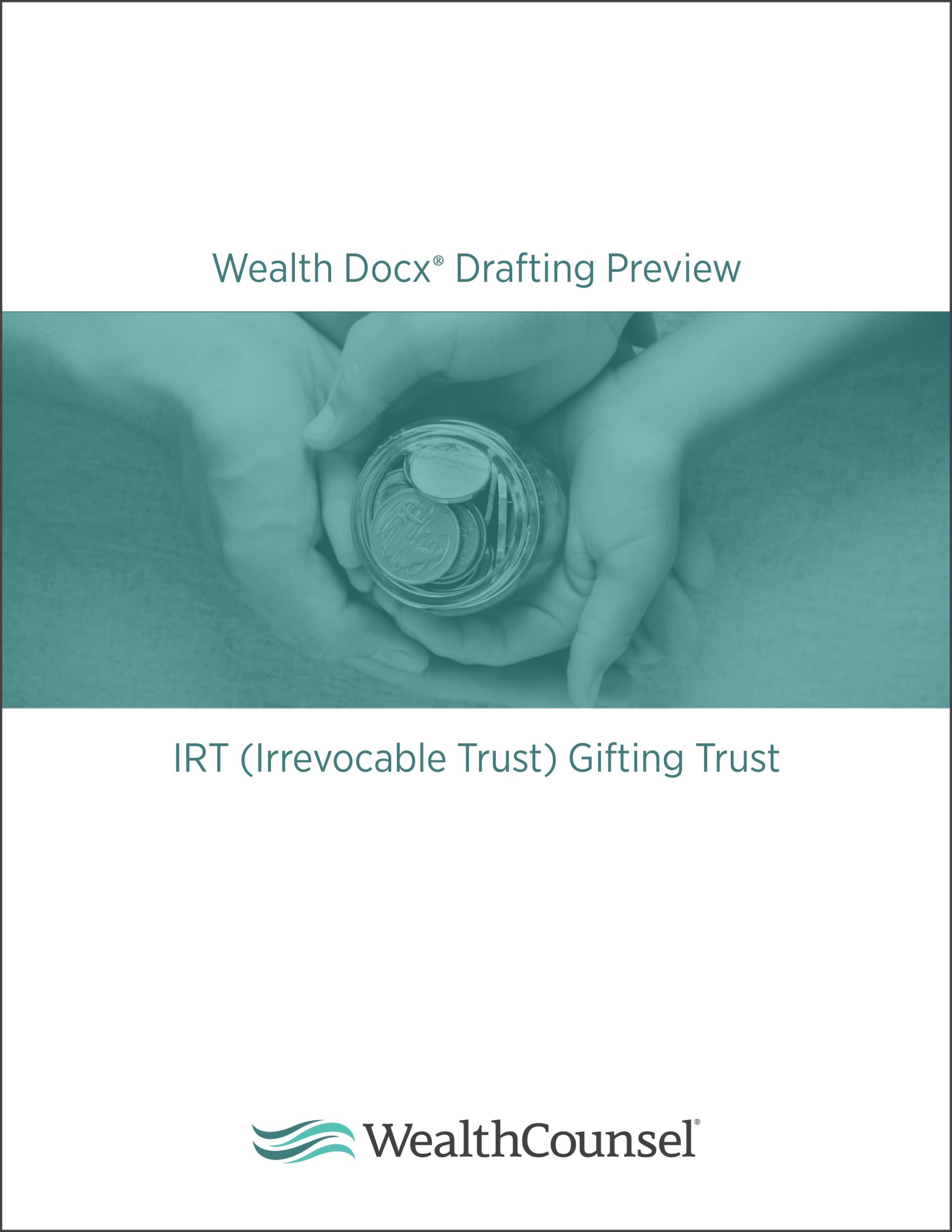Have you ever wondered if an irrevocable trust can actually make a gift to a beneficiary? It’s a fascinating conundrum that prods at the intricacies of estate planning. While many individuals think of trusts as rigid structures designed purely for asset protection, they can be surprisingly nuanced, especially when it comes to the strategies behind gifting. So, let’s explore the labyrinthine world of irrevocable trusts and the delightful possibilities they can offer!
First, let’s demystify what an irrevocable trust entails. Unlike revocable trusts, which can be altered or dissolved at the discretion of the grantor, an irrevocable trust locks in assets, removing them from your estate. This decision can have profound implications for both taxation and liability. Once established, the assets within an irrevocable trust belong to the trust itself, not the trust creator. This is an essential factor when discussing gifting mechanisms.
Now, consider the motivations behind establishing an irrevocable trust. Many individuals set up these trusts to sidestep the estate tax on assets that might otherwise revert to their estate upon death. This highlights a dual purpose of these trusts: they not only safeguard wealth from tax but can also serve a philanthropic role, particularly when it comes to beneficiaries. But, can a trust really engage in the act of gifting?
The answer is nuanced. Typically, irrevocable trusts are designed to distribute assets according to predetermined terms outlined by the grantor. Unlike a parent gifting money directly to a child, an irrevocable trust can, under certain conditions, distribute assets (or make gifts) to beneficiaries while adhering strictly to the rules and stipulations defined from the onset.
The trust document plays a critical role in delineating whether distributions can be made at the discretion of the trustee, or if they are mandatory based on the trust’s terms. In scenarios where the trustee has the authority to make discretionary distributions, they can indeed make gifts to beneficiaries, but this comes with its own set of challenges.
Consider the scenario where the trustee is determining the amount to be gifted. They may find themselves in a position of conflict, balancing the desires of beneficiaries against the long-term financial health of the trust. Can you envision the tricky waters a trustee must navigate to keep everyone satisfied? It’s a balancing act of loyalty, finances, and legal obligations that could make or break relationships.
And what about the implications of these gifts? When an irrevocable trust makes a gift, it is vital to remember that this transfer of assets may be subject to gift tax regulations. Gifts made by the trust are typically reported on the trust’s tax return. The IRS has particular thresholds that can come into play, and understanding these can be quite the task for the uninitiated. For instance, as of 2023, individuals can gift up to a certain amount ($17,000, for example) per recipient without incurring gift tax. However, trust gifting strategies need to consider cumulative gifts and the lifetime limits set forth by tax regulations.
One must also ponder the beneficiaries’ perspectives. Gifts from a trust can be both a blessing and a potential source of contention. Some beneficiaries may feel entitled to more than the trust allows, creating familial disputes that could lead to litigation. Navigating these sentiments while adhering to the trust’s terms can seem like a minefield. How can a trustee manage the delicate balance between donor intent, fiduciary duty, and familial harmony?
Moreover, let’s introduce a potential roadblock: Medicaid and other welfare programs. Many individuals gifting assets from a trust may not realize that these transactions can affect eligibility for various government benefits. If a trust beneficiary is reliant on government assistance or Medicaid, you could be treading into dangerous territory. The rules around asset gifting can complicate eligibility, leading to drastic repercussions. It’s like stepping into a tent of juggling clowns—all entertaining until one drops the ball!
Fortunately, there are ways to mitigate such challenges. Establishing clear communication among trustees, beneficiaries, and estate planning professionals can foster a better understanding of the intentions behind the trust. It’s vital to offer transparency in the decision-making process to alleviate potential strife. In some cases, regular meetings can provide insights into the trust’s performances and future distributions, ensuring everyone feels involved and informed.
In conclusion, while the concept of trust gifting through an irrevocable trust may initially appear straightforward, it unfurls into a tapestry woven with layers of complexity. The ability for an irrevocable trust to gift to a beneficiary is a possibility, contingent upon the exact terms set forth in the trust document and the fiduciary dynamics at play. As you consider this intricate landscape, remember to keep communication lines open and seek professional counsel when engaged in the complex world of trust planning. After all, the journey through the world of estate planning should not only be a safeguard against future uncertainties but also an opportunity to express and reinforce familial bonds.
